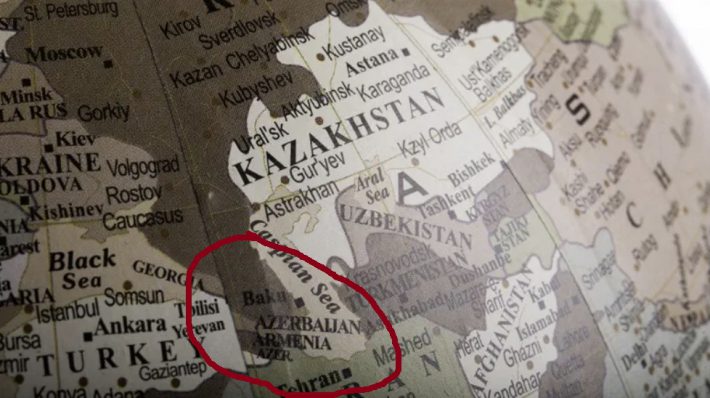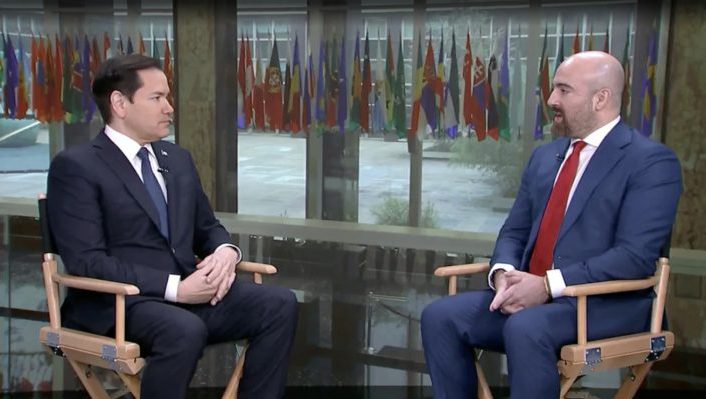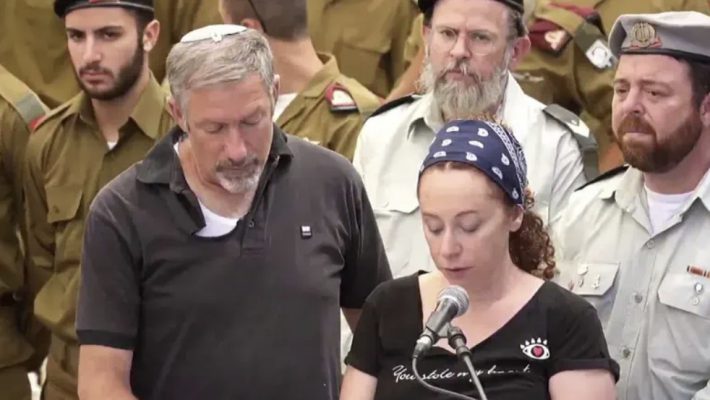South Azerbaijani and other dissidents discuss the importance of applying maximum pressure on Iran in support of Israel’s present Tehran campaign. Opinion.
In recent years, one of the central topics in international affairs has been the policy of “maximum pressure” on Iran. The main objective of this strategy is to prevent Iran from acquiring nuclear weapons, to protect regional stability, and to stop its support for terrorist organizations. Due to the urgent need to implement “maximum pressure on Iran,” Israel decided to attack Iran, so that Iran’s nuclear program be completely annihilated by force.
But is this policy only important for the West and Israel? Absolutely not. Germany’s Chancellor has hinted that Israel is merely doing Europe’s dirty work for them. But that is not all. Iran’s behavior and ambitions also pose a direct threat to Azerbaijan’s security, sovereignty, and internal stability.
For decades, Iran has provided financial, military, and logistical support to armed groups such as Hezbollah and Hamas. These terror groups not only threaten Israel and Arab states, but also jeopardize broader regional security. Iran’s growing influence extends to the South Caucasus as well, particularly through its deepening military ties with Armenia and provocative activities near Azerbaijan’s borders.
Iran has repeatedly criticized Azerbaijan’s legitimate actions on its sovereign territory — most notably, its victory in the 2020 Second Karabakh War. Iran’s leadership is uneasy with Azerbaijan’s successful, secular state model and its close ties with Israel. Military drills along the border and covert operations using religious networks inside Azerbaijan demonstrate Tehran’s hostile posture. A nuclear-armed Iran would significantly increase these threats and destabilize the region.
Dr. Javad Abbasi, a South Azerbaijani dissident, stressed: “Contrary to the prevailing monolithic Persian nationalist narrative, Iran is a profoundly multiethnic society. Ethnic minorities including Azerbaijani Turks, Arabs, Kurds, Baloch, and Turkmen constitute over half of Iran’s population. Brenda Shaffer, in her book Iran is More Than Persia: Ethnic Politics in Iran, emphasizes that Iran is a multiethnic state where Persians constitute less than half of the population. This demographic reality directly contradicts Tehran’s centralized regime which claims to be inclusive of national representation. In practice, the Islamic Republic enforces systemic denial of cultural and linguistic rights, with Azerbaijani Turks, among other minorities, excluded from mother tongue education, subjected to discrimination, and persecuted for peaceful cultural and political expression. The regime’s stance treats ethnic identity not as a legitimate right but as a perceived threat to its ideological hegemony.”
Continued pressure on the Iranian regime can support internal reform movements and amplify the voice of these oppressed communities.
Azerbaijan has long pursued a balanced foreign policy. Yet, its strategic allies — including Israel, Turkey, and the United States — share common concerns about Iran’s actions and nuclear ambitions. A nuclear Iran is a red line for these countries. As a regional actor committed to peace and stability, Azerbaijan cannot afford to remain silent on this issue.
The maximum pressure campaign is not just a geopolitical tactic — it is a necessary tool for ensuring stability in the region. Azerbaijan must recognize the risks posed by a hostile, nuclear-capable neighbor and support Israel’s efforts to contain that threat. Silence today may lead to greater dangers tomorrow.
South Azerbaijani dissident Ahmed Obali stated in an exclusive interview: “Iran is at the weakest situation or condition in the last forty years, with Hezbollah decapitated, Hamas in disarray and Assad gone. Basically, the Shia Crescent that they were trying to make no longer exists. Of course, the Houthis are beaten back badly by Israel and the US. Iran has lost everything. Everything that Iran has in Iraq is controlled by the Iraqi government now and they are not acting. Their economy is in disarray and the new president openly talks about how damaging the sanctions have been to Iran’s economy. Right now, Iran is at its weakest point and now is the time to push Iran for a better solution, which is to abandon nuclear power once and for all.”
Obali claimed, “If you want to help Iranian people, get rid of this regime by letting Israel do what it wants and letting the people rise up. Iran is not a Persian nation by itself. Persians are not even the majority. They are a minority like everyone else. All non-Persian ethnic groups in Iran are very much against the government and Persian nationalism, which forcefully assimilated them and banned their languages in schools. The non-Persians are for Israel and America hitting Iran hard and are asking for military intervention. By giving these organizations hope to rise up, they could bring the Iranian government down very fast. Give the non-Persians a voice, hope and tools. They will bring the government down and make it a decentralized federal country.”
According to Obali, a decentralized Iran “would make it harder for the hard-liners to ever push for a nuclear state again. I would like to emphasize, don’t forget the so-called ethnic minorities. Focusing on the majority [of Iran’a population] is smarter than focusing on a minority within a minority. The mullahs are not even accepted by the Persians. Focus on the non-Persians and some Persians will join them as well, creating a democratic decentralized government that will help our goals much better. The biggest so-called minority are the Azerbaijanis, who make up 40 percent of the population. This 40 percent of the population is spread throughout the country, but is mostly in the north-west, which borders Turkey, Azerbaijan and Armenia. This area supports a federal system, if not separation and wants to form their own government, and eventually unite with North Azerbaijan. South Azerbaijanis love Israel and support Israel.”
Obali stressed, “If the South Azerbaijanis have a state or at least a federal system, then Israel and the US has a clear cut ally, which is at least a third of the population in one of the most strategic areas of the country. It is a productive land. Iran uses South Azerbaijan’s minerals and underground wealth. However, 90 percent of the population is pro-Israel, pro-America, and wants to secede. The Kurdish, Baloch, and Ahwaz areas of the country are also against the regime for they are poor because their wealth is taken to the Persian areas in the center. The center of the country is very barren, forcing the Persian center to depend upon the non-Persian areas of the country. The government is surrounded by non-Persian ethnic groups, who all want Israel to succeed in its maximum pressure campaign.”
According to Dr. Abbassi, “Iran’s nuclear program, though urgent, represents a symptom of a broader systemic malaise, a regime founded on repression, racial ideology, and enforced homogeneity. The decisive contest for Iran’s future is unfolding not in diplomatic chambers but in classrooms, prisons, and communities where citizens demand equality and cultural recognition. Tehran’s greatest vulnerability is not its nuclear arsenal but the awakening of its multiethnic population. The international community must cease compromising with authoritarianism and instead champion the democratic, multicultural vision historically embodied by the Azerbaijani peoples of North and South Azerbaijan.”
Dissident Ahmad Hashemi concurred: “Squeezing Iran requires immediate neighbors and Azerbaijan is an immediate neighbor willing to help. Azerbaijan holds major leverage over Iran. First of all, Azerbaijan is Iran’s gateway to Europe. Also Iran has a significant Azerbaijani population, which is another leverage Azerbaijan has much against the regime in Tehran. Another leverage is Azerbaijan’s ties with Israel, which permit them to be in the strategic position that they are in. For this reason, Azerbaijan is an important ally in dismantling the Iranian regime and this geopolitical asset needs to be taken seriously and to be exploited in countering the Iranian regime.”
Rachel Avrahamis the CEO of the Dona Gracia Center for Diplomacy and an Israel-based journalist. She is the author of “Women and Jihad: Debating Palestinian Female Suicide Bombings in the American, Israeli and Arab Media.”





